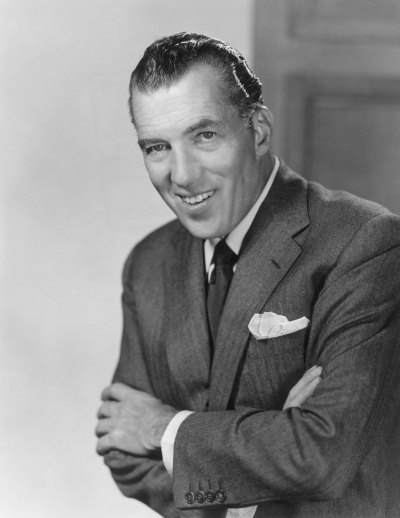Let me tell you a story about Ed Sullivan, the man who became a household name in America. Wherever Ed went, it felt like he brought the spotlight with him. One time, his eldest grandchild, Robert Precht, was starring in a sixth-grade production of The Pirates of Penzance in Scarsdale, New York. Guess what? Ed showed up, proudly taking his seat in the audience. "Kids were racing down the stairs trying to get his autograph," Robert recalls to Closer Weekly. "He was always good-natured about it and had time for everyone." That's the kind of man Ed was—always ready with a smile for his fans.
A Man Who Loved His Family
But Ed wasn't just about the fans; he was deeply committed to his family too. He married Sylvia in 1930, and they stayed together until her passing in 1973. "They had a very good marriage, and she was his biggest fan," says granddaughter Margo Elizabeth Speciale. Ed and Sylvia only had one child, Betty, whose husband, Bob Precht, worked as a producer on The Ed Sullivan Show. That groundbreaking variety show ran from 1948 to 1971 and became a cornerstone of American television.

For Margo, Ed wasn't just some big TV star; he was Grandpa. "He was a big deal to America, but to me, he was just Grandpa," she says. "I remember being on the couch in our living room, and he'd do little magic tricks, pretending to take his thumb off. It was always a fun time." Those little moments made Ed unforgettable to his family.
Read also:Unpacking The True Meaning Of Cultural And Urban Terms
The Journey to Becoming a Television Icon
Ed's journey wasn't always easy. He started out as a columnist for the New York Daily News, writing about sports and theater. But he lived in the shadow of Walter Winchell, the most famous newspaperman in America. "There was a fierce rivalry," Robert explains. "He wanted to be remembered as the best at something, and after a lot of struggle, he became the best emcee." Television gave Ed his big break, but it wasn't smooth sailing at first. "He was Everyman, your uncle next door, but critics tore him apart in the beginning because they felt he was so awkward," says Margo. "He learned to laugh at himself, and that became one of his most endearing qualities."

Breaking Barriers on the Small Screen
Ed knew he wasn't the star of the show. His job was to introduce a wide array of performers, from novelty acts like the Italian puppet Topo Gigio to rock 'n' roll legends like Elvis Presley and The Beatles. But his biggest impact might have been showcasing African-American artists like Diana Ross and the Supremes and Stevie Wonder during an era when racial segregation was still common. "Through his body language and the way he introduced people, he conveyed a real affection for African-American culture," says Robert, who's working on a biography of his grandfather. "He created a kind of model integrated society."



